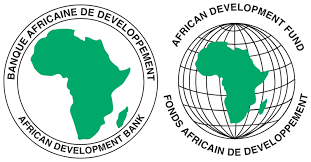African Development Bank Deepens Civil Society Ties to Drive Africa’s Development
The 2025 CSO Forum exemplified AfDB's shift from transactional relationships to transformative partnerships with civil society.

- Country:
- Ivory Coast
On May 8, 2025, the African Development Bank (AfDB) took a definitive step toward solidifying its collaboration with civil society organizations (CSOs) at the 2025 Civil Society Organizations Forum. Held at the Bank’s headquarters in Abidjan, the forum was organized under the theme "Celebrating the Contribution of Civil Society to Africa's Development." With over 150 participants attending in person and thousands joining online from across Africa and the diaspora, the event spotlighted the transformative role civil society plays in the continent’s socio-economic progress.
A Vision for Inclusive Progress: Civil Society Engagement Action Plan (2024–2028)
The centerpiece of this year’s forum was the launch of the Civil Society Engagement Action Plan (2024–2028)—a roadmap that reaffirms AfDB's dedication to participatory development. Zeneb Touré, Manager of the Civil Society and Community Engagement Division, unveiled the strategic framework, which was formally received by Dr. Beth Dunford, AfDB’s Vice-President for Agriculture, Human, and Social Development, on behalf of Bank President Akinwumi Adesina.
The Action Plan outlines clear strategies to institutionalize engagement with CSOs, emphasizing inclusive policy dialogue, localized implementation of projects, and co-created monitoring frameworks. It seeks to align civil society’s grassroots strengths with AfDB’s large-scale development machinery, fostering a model where communities are not just beneficiaries but co-architects of progress.
Dr. Dunford underscored the evolution of this relationship:
"Over the years, civil society engagement has become a cornerstone of the African Development Bank’s work. What was once an aspiration has now evolved into a structured, institutionalized, and results-oriented collaboration."
Embracing Diversity: Civil Society as a Development Catalyst
The forum celebrated the broad spectrum of civil society actors shaping Africa’s trajectory—from climate activists to women entrepreneurs and farmers' cooperatives. In a gesture of symbolic unity, Dr. Dunford shared the new Action Plan with representatives of the Bank-Civil Society Committee, the Climate and Energy Coalition, and a network of women entrepreneurs' associations.
Prominent climate advocate Augustine Njamnshi hailed the initiative, calling it a "historic turning point":
"Born from a shared vision, this document becomes our collective legacy. We express our sincere gratitude to the Bank for this profound act of trust."
Similarly, Kolyang Palebele from the Platform of Farmers' Organizations of Africa emphasized the foundational role of civil society:
"Civil society is not on the margins of development dynamics; it is the very essence, its living memory and its engine for change."
Localization at the Core: Advancing Decentralized Engagement
A special session of the forum showcased the Bank’s decentralization efforts, with representatives from Africa’s five regions presenting successful models of localized CSO collaboration. A highlight was a cross-border initiative linking the Central African Republic and the Democratic Republic of Congo. This project provided over 2.4 million people with access to clean water, sanitation, and hygiene services, while also enhancing community resilience and fostering regional cooperation.
Nnenna Nwabufo, Vice-President for Regional Development, Integration and Service Delivery, praised the initiative:
"Such grassroots cooperation exemplifies the future of development—where communities drive progress through shared ownership and cross-border solidarity."
Elevating Transparency: An Open Dialogue for Accountability
The forum concluded with a groundbreaking dialogue session between senior leaders from seven of the Bank’s strategic departments and CSO representatives. Topics covered included environmental and social safeguards, access to information, agriculture, youth empowerment, grievance mechanisms, gender equality, and climate action.
This candid exchange was lauded as a milestone in institutional transparency. By creating space for mutual listening and critical reflection, the Bank demonstrated its readiness to be held accountable and to co-create solutions with civil society partners.
A Blueprint for the Future
The 2025 CSO Forum exemplified AfDB's shift from transactional relationships to transformative partnerships with civil society. The newly launched Action Plan (2024–2028) is not merely a document but a declaration—a commitment to co-lead Africa’s future with its people at the heart.
As Africa faces complex challenges, the Bank's approach—grounded in decentralization, inclusivity, and trust—offers a powerful template for sustainable development. Through ongoing collaboration, civil society will not only amplify the Bank’s impact but also ensure that development is equitable, resilient, and people-centered.










